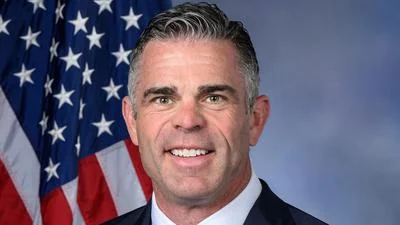Anthony Christian Wied, U.S. Representative for Wisconsin 8th Congressional District | Official Website
Anthony Christian Wied, U.S. Representative for Wisconsin 8th Congressional District | Official Website
Yesterday, a bipartisan coalition led by Congressman Tony Wied (WI-08), Congresswoman Kristen McDonald Rivet (MI-08), and Congressman Max Miller (OH-07) successfully advanced the Great Lakes Icebreaker Act of 2025 through the U.S. House Committee on Transportation & Infrastructure. The legislation directs the U.S. Coast Guard to create a plan for designing and building a new icebreaker for the Great Lakes while evaluating the current fleet's effectiveness.
"Great Lakes shipping moves more than 90 million tons of cargo annually and is incredibly important to the economy of Wisconsin and the country as a whole," said Congressman Wied. "Unfortunately, inadequate icebreaking capabilities on the Lakes result in losses of up to $1 billion annually and threaten thousands of jobs. I am proud to stand with Reps. McDonald Rivet and Miller in introducing this bipartisan legislation to require the Coast Guard to develop a strategy to design and complete a new heavy-class Great Lakes icebreaker to keep these routes open in the winter. This will strengthen our economy and benefit consumers across the nation."
Congresswoman McDonald Rivet emphasized, "Winter in the Great Lakes can be brutally cold and dangerous. When too much ice builds up, commercial ships can't get through, and our economy slows down. This bill ensures we have the icebreaking ships we need to protect jobs and keep lanes of commerce open, no matter what Midwest winters have to throw at us."
The bill mandates that heavy icebreakers like the Coast Guard Cutter Mackinaw are essential for aiding commercial vessels navigating frozen waters. It requires that Congress receive a plan from the Coast Guard detailing design, construction costs, and timelines for a new Great Lakes Icebreaker. Additionally, it authorizes a five-year pilot program for testing whether existing icebreaking resources can maintain open priority waterways during icy conditions.






 Alerts Sign-up
Alerts Sign-up